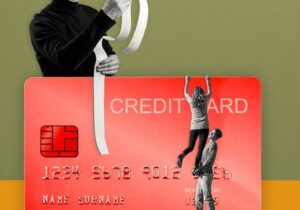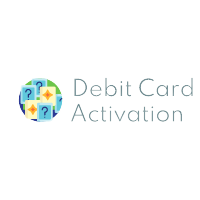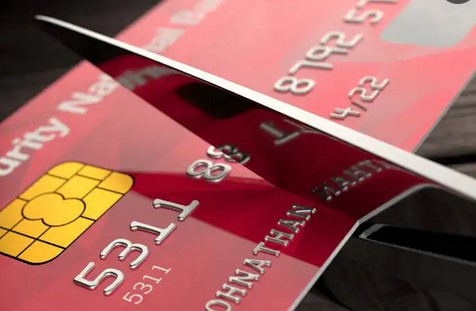Credit card debt can feel like a heavy burden, but with strategic planning and disciplined actions, it’s possible to break free from its shackles and regain financial control. This comprehensive guide explores practical steps, smart strategies, and expert advice to help you liberate yourself from credit card debt and pave the way to financial freedom.

Understanding the Weight: The Impact of Credit Card Debt
Before embarking on the journey to debt freedom, it’s crucial to understand the impact of credit card debt on your overall financial health. High-interest rates, minimum payments, and the compounding nature of debt can lead to a cycle that feels difficult to escape. Acknowledging the weight of the debt is the first step toward a debt-free future.
Assessing Your Debt: Facing the Numbers
To craft an effective plan, you need a clear understanding of your current financial situation. Compile a comprehensive list of all your credit card debts, noting the outstanding balances, interest rates, and minimum payments. This detailed overview serves as the foundation for creating a targeted strategy to tackle each debt.
Creating a Realistic Budget: The Roadmap to Freedom
A well-structured budget is the key to managing your finances and channeling funds toward debt repayment. List your monthly income and categorize your expenses, differentiating between essentials and discretionary spending. Allocate a significant portion of your budget to debt repayment while ensuring that you have enough to cover necessary living expenses.
Snowball vs. Avalanche: Choosing Your Strategy
Two popular debt repayment strategies are the debt snowball and debt avalanche methods. The debt snowball involves paying off the smallest debt first, providing psychological wins, while the debt avalanche prioritizes high-interest debts to minimize overall interest payments. Choose the strategy that aligns with your preferences and financial goals.
Negotiating Interest Rates: Advocating for Yourself
Contacting your credit card issuers to negotiate lower interest rates can significantly reduce the financial burden of credit card debt. Explain your situation, highlight your commitment to repayment, and inquire about the possibility of securing a lower interest rate. Even a slight reduction can translate into substantial savings over time.
Consolidation Options: Streamlining Payments
Debt consolidation involves combining multiple debts into a single, more manageable payment. This can be achieved through balance transfer credit cards, personal loans, or debt consolidation loans. While consolidation can simplify payments, it’s crucial to assess the terms and interest rates to ensure it’s a cost-effective solution for your situation.
Building an Emergency Fund: A Safety Net for Financial Stability
Creating an emergency fund is a vital step in breaking the cycle of relying on credit cards for unexpected expenses. Set aside a portion of your income in a separate account to cover unforeseen costs, preventing the need to resort to credit cards in times of financial strain.
Cutting Unnecessary Expenses: Trimming the Fat
Identify non-essential expenses in your budget that can be reduced or eliminated. This might include dining out less frequently, canceling subscription services, or finding more cost-effective alternatives. Redirect the money saved toward debt repayment, accelerating your journey to financial freedom.
Increasing Your Income: Exploring Additional Avenues
Supplementing your primary income with additional streams can expedite debt repayment. Consider freelancing, part-time work, or leveraging skills for side gigs. The extra income can be directed toward paying off credit card debt, providing a significant boost to your overall repayment efforts.
Seeking Professional Advice: Consulting Financial Experts
If managing credit card debt becomes overwhelming, seeking guidance from financial experts can be a wise move. Credit counseling agencies and financial advisors can offer personalized strategies, negotiate with creditors on your behalf, and provide valuable insights into debt management.
Staying Motivated: Celebrating Milestones
Debt repayment is a journey, and celebrating milestones along the way is crucial for staying motivated. Whether it’s paying off a specific credit card or reaching a percentage of overall debt reduction, acknowledge your achievements and use them as fuel to continue your progress.
Avoiding Future Debt: Cultivating Financial Habits
Achieving freedom from credit card debt is not just about repayment; it’s also about cultivating healthy financial habits. Embrace mindful spending, prioritize saving, and consider adopting a cash-first mentality. By incorporating these habits into your lifestyle, you can prevent the recurrence of excessive credit card debt.
Utilizing Windfalls Wisely: Accelerating Repayment
Unexpected windfalls, such as tax refunds, bonuses, or gifts, can serve as powerful tools in your debt repayment arsenal. Rather than splurging on non-essential purchases, consider directing these windfalls toward credit card debt. This approach accelerates your progress without impacting your regular budget.
Monitoring Your Progress: Regular Financial Check-Ins
Consistent monitoring of your financial progress is essential for staying on track. Regularly review your budget, track debt reduction milestones, and reassess your strategies as needed. This ongoing evaluation ensures that you remain proactive in your journey toward financial freedom.
The Psychology of Debt Repayment: Shifting Mindsets
Breaking free from credit card debt involves not only financial strategies but also a shift in mindset. Embrace a positive attitude toward money, view debt repayment as an investment in your future, and prioritize long-term financial well-being over short-term gratification.
Celebrating Debt Freedom: The Ultimate Victory
Reaching the point of debt freedom is a monumental achievement. Celebrate this victory and acknowledge the discipline, sacrifices, and perseverance that led to this moment. Use this experience as a foundation for continued financial success and share your journey with others to inspire and empower.
The Ripple Effect: Financial Freedom Beyond Debt
Liberating yourself from credit card debt creates a ripple effect that extends beyond mere financial relief. It fosters a sense of empowerment, confidence, and control over your financial destiny. As you embrace a debt-free future, you can redirect your resources toward building wealth, pursuing goals, and enjoying the fruits of your disciplined efforts.
Conclusion: Your Path to Financial Liberation
Freeing yourself from credit card debt is a transformative journey that requires dedication, strategic planning, and a commitment to lasting financial habits. By understanding the impact of debt, creating a realistic budget, exploring repayment strategies, and staying motivated, you can pave the way to financial liberation. Remember, the path to freedom may have challenges, but each step brings you closer to a debt-free and financially empowered future.

